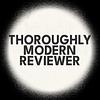You need to sign in or sign up before continuing.
Take a photo of a barcode or cover
4.5/5 stars.
With Russell T. Davies set to return as the showrunner of Doctor Who in 2023, it seemed like the perfect time to finally read The Writer's Tale. Published in 2010, Doctor Who: The Writer's Tale explores the final two years of Davies' original run of Doctor Who - from the earliest days of season four to the final days of filming the Tenth Doctor's regeneration special. Told through emails sent back and forth between Davies and Doctor Who Magazine writer, Ben Cook, The Writer's Tale chronicles the good, the bad, and the in-between of producing these episodes. It's less of a how-to-write book and more of a book about writing. And for that, it stands apart from the crowd of various behind-the-scenes books for TV shows and movies.
For hardcore Doctor Who fans, The Writer's Tale is a smorgasbord of tantalizing information and behind-the-scenes tidbits. There are glimpses of companions that never were (RIP Penny Carter), stories that got axed (I'm always gonna be a little bitter about the Most Haunted homage never making it past the planning stage!), and plenty of discussion about ongoing storylines that should excite even the biggest Doctor Who fan. If you've ever wondered what goes into making this huge, crazy show, then The Writer's Tale is the book for you. There are even excerpts of Davies' early drafts for some of his biggest episodes - the season four finale, and David Tennant's regeneration episode. Having the opportunity to read such early versions of iconic stories is easily worth the price of admission alone. Plus, you get a front-row seat at the absolute pandemonium that of one showrunner leaving, and another one stepping in. And also all the ways that revealing a new Doctor can go wrong. It's the perfect time period for a tell-all book, and everything you could want to know about this period of the show is laid bare.
Even more interesting, though, are the parts of the book that focus on Davies' personal experience during this time. The Writer's Tale is the rare book about TV/film that doesn't paint a particularly rosy picture. Davies even says at one point that anyone who reads the book and still wants to be a writer will probably end up becoming one. For Davies, the work is hard. It's never-ending. It's emotionally taxing. And he works himself to the bone. But for all the moments of turmoil, there's an equal amount of joy. And The Writer's Tale captures this beautifully. The moments where Davies just spills his ideas onto the page are like witnessing how a magician performs their magic trick. And it's glorious to witness.
Through it all, you can always feel Davies' passion for the show. He only puts himself through all of this because he adores Doctor Who. And as the book inches towards his final days as showrunner, you really get the sense of his conflicting emotions. His happiness, his sadness, his relief, and his regret. And it's honestly quite moving. After all, it must be hard to walk away from a show like Doctor Who. And for that reason, alone, the book is a must-read for anyone hoping to one day run a TV show. Plus, reading the insights of a TV veteran like Davies is beyond fascinating for anyone with even a passing interest in the industry. It's a shockingly honest and somewhat brutal read at times. But one that's always fascinating.
At the end of the day, Doctor Who: The Writer's Tale bears less in common with more traditional behind-the-scenes books and reads more like a memoir. It's an exhaustive, intimate, and revealing look at the end of Davies' original run. For fans of the show, it's filled with orphaned ideas, early drafts of scripts, and a mountain of other Doctor Who fun facts. And for everyone else, it's a stark, beautiful rumination on showrunning a show. And on writing in general. If you've got the slightest interest in writing for TV, it's an absolute must-read.
With Russell T. Davies set to return as the showrunner of Doctor Who in 2023, it seemed like the perfect time to finally read The Writer's Tale. Published in 2010, Doctor Who: The Writer's Tale explores the final two years of Davies' original run of Doctor Who - from the earliest days of season four to the final days of filming the Tenth Doctor's regeneration special. Told through emails sent back and forth between Davies and Doctor Who Magazine writer, Ben Cook, The Writer's Tale chronicles the good, the bad, and the in-between of producing these episodes. It's less of a how-to-write book and more of a book about writing. And for that, it stands apart from the crowd of various behind-the-scenes books for TV shows and movies.
For hardcore Doctor Who fans, The Writer's Tale is a smorgasbord of tantalizing information and behind-the-scenes tidbits. There are glimpses of companions that never were (RIP Penny Carter), stories that got axed (I'm always gonna be a little bitter about the Most Haunted homage never making it past the planning stage!), and plenty of discussion about ongoing storylines that should excite even the biggest Doctor Who fan. If you've ever wondered what goes into making this huge, crazy show, then The Writer's Tale is the book for you. There are even excerpts of Davies' early drafts for some of his biggest episodes - the season four finale, and David Tennant's regeneration episode. Having the opportunity to read such early versions of iconic stories is easily worth the price of admission alone. Plus, you get a front-row seat at the absolute pandemonium that of one showrunner leaving, and another one stepping in. And also all the ways that revealing a new Doctor can go wrong. It's the perfect time period for a tell-all book, and everything you could want to know about this period of the show is laid bare.
Even more interesting, though, are the parts of the book that focus on Davies' personal experience during this time. The Writer's Tale is the rare book about TV/film that doesn't paint a particularly rosy picture. Davies even says at one point that anyone who reads the book and still wants to be a writer will probably end up becoming one. For Davies, the work is hard. It's never-ending. It's emotionally taxing. And he works himself to the bone. But for all the moments of turmoil, there's an equal amount of joy. And The Writer's Tale captures this beautifully. The moments where Davies just spills his ideas onto the page are like witnessing how a magician performs their magic trick. And it's glorious to witness.
Through it all, you can always feel Davies' passion for the show. He only puts himself through all of this because he adores Doctor Who. And as the book inches towards his final days as showrunner, you really get the sense of his conflicting emotions. His happiness, his sadness, his relief, and his regret. And it's honestly quite moving. After all, it must be hard to walk away from a show like Doctor Who. And for that reason, alone, the book is a must-read for anyone hoping to one day run a TV show. Plus, reading the insights of a TV veteran like Davies is beyond fascinating for anyone with even a passing interest in the industry. It's a shockingly honest and somewhat brutal read at times. But one that's always fascinating.
At the end of the day, Doctor Who: The Writer's Tale bears less in common with more traditional behind-the-scenes books and reads more like a memoir. It's an exhaustive, intimate, and revealing look at the end of Davies' original run. For fans of the show, it's filled with orphaned ideas, early drafts of scripts, and a mountain of other Doctor Who fun facts. And for everyone else, it's a stark, beautiful rumination on showrunning a show. And on writing in general. If you've got the slightest interest in writing for TV, it's an absolute must-read.
Loved this! Funny, insightful, interesting...fascinating to see RTD's story-writing process, how ideas changed and evolved.
A must read for any writer. This isn't just a list of things to think about while writing, this is a look inside the mind of a writer AS HE IS WRITING! It's wonderful.
If you ever wanted to read RTD's email exchanges about his processes in writing Doctor Who, then this is the book for you.
It gets one star for being about Doctor Who, and a second star for a few interesting tidbits it contained. It was a painful read, though easy to skim through the non-DW palaver.
It gets one star for being about Doctor Who, and a second star for a few interesting tidbits it contained. It was a painful read, though easy to skim through the non-DW palaver.
This was so neat to be able to read about the process of making my favorite show. I know a lot of people don't like RTD, but i think he's funny. My favorite part was the sample of the scripts and seeing how they evolved.
funny
informative
inspiring
lighthearted
reflective
relaxing
medium-paced
I was put off reading this for quite some time. More than 700 pages of e-mails back and forth between Russell T Davies and Benjamin Cook. Really, who'd read that? Well it turned out to be my bad, because this was a riveting work, Ben - or Benjamino, as he's often called in these correspondences - teasing answers out of Russell about the writing process, the pressures, the relentless grind of being the driving force behind Doctor Who from its return to television in 2005 to his eventual departure five years later.
The e-mails cover two years of the Doctor's adventures, its fourth series, which was also the last complete one starring David Tennant, and the 'season' of specials. At the same time, Russell was also writing for Torchwood and taking on something of a Godfather role over The Sarah Jane Adventures. Three major British TV franchises. Lots of work. Did I mention the pressure? I remember at the time Russell taking on all manner of flak for what he'd done to Doctor Who - the apparent dumbing down, the romances with his companions, bastardising canonical villains like the Master. I didn't agree with all of it; for me, the way he ended the third series was inspired, fun, and very, very exciting, which flew against the prevailing and adverse opinion. But what did Russell himself think? Did he care? Was he as bad as the rest of us for visiting the various messageboards and websites just to read people tearing into his vision for the show? Of course he did. It's all here, the semi-cathartic visits to online forums just to see what new insults he'd served up with his latest scripted episode and learning to roll with the punches.
The truth is that show-running for Doctor Who was tough, especially once it was clear the series had scored a big hit for the BBC and its importance grew and grew. I took my son to an exhibition of props and costumes in Manchester some time after the second series had finished, and the place was packed, filled with dads like me and their kids, all of us excited to be up close and personal with this stuff. That drilled home to me the cultural impact of 'new Who', and the contribution Russell made to that, in just about all ways the key contribution.
In the book, we learn the writing process wasn't easy. It took time, effort, periods where nothing much happened punctuated with bursts of energetic work, whole chunks of script excised because they went nowhere or would cost too much to film, other bits worked and worked upon until they felt just right (the development of the key scene in Tennant's last special when Bernard Cribbins has locked himself into a sealed vault shows just how painstaking all this was). All to create a good script, and I think it was no less a figure than Steven Moffatt who advised us how difficult this was - putting something out there that introduced characters, told a story within the confines of 45 minutes of adapted material, entertained a wide cross-section of ages, could appeal to veterans of the classic series and young viewers alike, worked in elements of what would become a series-long arc, none of it straightforward. The narrative flow of an episode, often looking so natural and unforced, was tweaked and tweaked and tweaked to make it that way; it didn't just happen. Perhaps it didn't always work as well as you would have liked it to. But one thing for certain was that it was cared about. Russell was bothered, as well as writing managing the other writers, treating their scripts, directing the narrative course of the series, helping to cast, forming relationships with the actors and crew, etc, etc.
I'll admit I emerged with a newfound respect for the man, in fairness a respect that was never really absent because I've always enjoyed Doctor Who and indeed now Russell's no longer involved it's ever so slightly poorer for his non-involvement.
The e-mails cover two years of the Doctor's adventures, its fourth series, which was also the last complete one starring David Tennant, and the 'season' of specials. At the same time, Russell was also writing for Torchwood and taking on something of a Godfather role over The Sarah Jane Adventures. Three major British TV franchises. Lots of work. Did I mention the pressure? I remember at the time Russell taking on all manner of flak for what he'd done to Doctor Who - the apparent dumbing down, the romances with his companions, bastardising canonical villains like the Master. I didn't agree with all of it; for me, the way he ended the third series was inspired, fun, and very, very exciting, which flew against the prevailing and adverse opinion. But what did Russell himself think? Did he care? Was he as bad as the rest of us for visiting the various messageboards and websites just to read people tearing into his vision for the show? Of course he did. It's all here, the semi-cathartic visits to online forums just to see what new insults he'd served up with his latest scripted episode and learning to roll with the punches.
The truth is that show-running for Doctor Who was tough, especially once it was clear the series had scored a big hit for the BBC and its importance grew and grew. I took my son to an exhibition of props and costumes in Manchester some time after the second series had finished, and the place was packed, filled with dads like me and their kids, all of us excited to be up close and personal with this stuff. That drilled home to me the cultural impact of 'new Who', and the contribution Russell made to that, in just about all ways the key contribution.
In the book, we learn the writing process wasn't easy. It took time, effort, periods where nothing much happened punctuated with bursts of energetic work, whole chunks of script excised because they went nowhere or would cost too much to film, other bits worked and worked upon until they felt just right (the development of the key scene in Tennant's last special when Bernard Cribbins has locked himself into a sealed vault shows just how painstaking all this was). All to create a good script, and I think it was no less a figure than Steven Moffatt who advised us how difficult this was - putting something out there that introduced characters, told a story within the confines of 45 minutes of adapted material, entertained a wide cross-section of ages, could appeal to veterans of the classic series and young viewers alike, worked in elements of what would become a series-long arc, none of it straightforward. The narrative flow of an episode, often looking so natural and unforced, was tweaked and tweaked and tweaked to make it that way; it didn't just happen. Perhaps it didn't always work as well as you would have liked it to. But one thing for certain was that it was cared about. Russell was bothered, as well as writing managing the other writers, treating their scripts, directing the narrative course of the series, helping to cast, forming relationships with the actors and crew, etc, etc.
I'll admit I emerged with a newfound respect for the man, in fairness a respect that was never really absent because I've always enjoyed Doctor Who and indeed now Russell's no longer involved it's ever so slightly poorer for his non-involvement.
The best book on a writer's life ever from an admirable man.
Love this man.
Love this show.
Fucking love this book.
Honestly, one of the greatest guides to writing ever.
Love this show.
Fucking love this book.
Honestly, one of the greatest guides to writing ever.
emotional
funny
informative
inspiring
reflective
fast-paced





